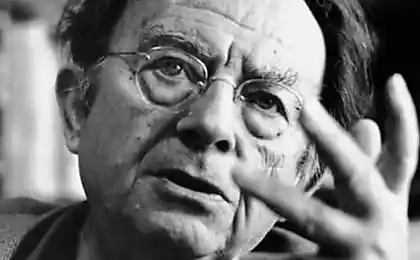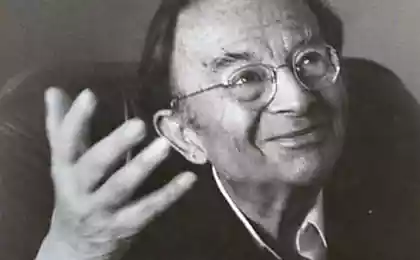639
Erich Fromm —the three typical mechanism of escape from freedom

Original views on the problem of freedom of an outstanding thinker of the XX century, Erich Fromm (1900 — 1980), who spent a deep analysis of the psychological values of freedom.
Socio-psychological paradoxes of freedom dedicated the first book of Erich Fromm "Escape from freedom" (1941), written during the Second World war in the United States, where, as a Jew, Erich Fromm emigrated from Nazi Germany.The Fromm's reflections on the ethical and socio-psychological paradoxes of freedom, is still stimulating your potential for self-searches.
Erich Fromm identified three typical mechanism of escape from freedom characteristic to modern society:
authoritarianism; destructiveness (destructiveness); automates conformism.
Under authoritarianism Erich Fromm understood the complex sadomasochistic relationship of different social scale. Such sadomasochistic relations reflect a tendency of refusal of independence of his personality and the desire to merge the "I" with someone or something external, so as to obtain the power remaining to the individual. In other words, the individual seeks for new, "secondary" bonds to replace the lost primary.

The destructiveness (destructiveness) by E. Fromm to be distinguished from the sadomasochistic longings, although they are largely correlated. The destructiveness is characterized in that its object is not active or passive symbiosis, and the destruction, the elimination of the object. Although the destructiveness is based on the same powerlessness and isolation of the individual, here a deliverance from a sense of powerlessness in relation to the surrounding world is achieved by the destruction of this world. If sadism tends to strengthen the lone individual at the expense of its domination over the other, the destructiveness is due to the elimination of any external threat. Of course, in the case of a complete triumph of the destroyer would be completely alone but it will be "brilliant" loneliness in which he will not be threatened by any external forces. To destroy the world — a last desperate attempt not to let the world destroy itself.
In addition to authoritarianism and destructiveness a person may try to get rid of loneliness and alienation by absolute obedience to social norms, becoming exactly the same as all the others. E. Fromm believed that this loss of individuality by automates conformism rooted in the social nature of most modern people.
The three ways of escape from freedom Erich Fromm contrasted the spontaneous activity is free activity of the individual, which may occur in emotional, intellectual and sensual human life, but also in his will.
source
Source: /users/1077























